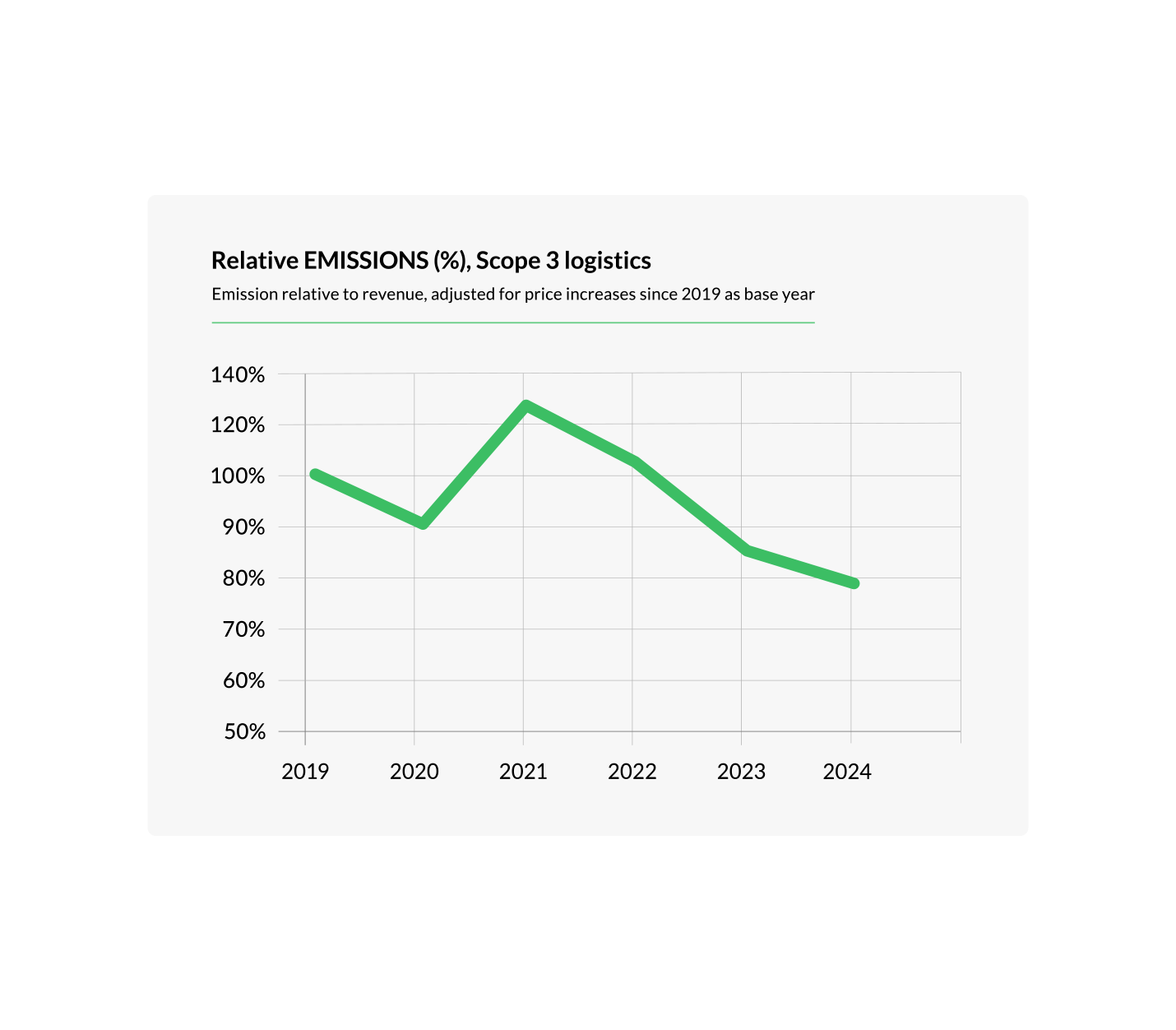Logistics
Optimizing our logistics network is an important part of our sustainability strategy.
Sustainability

Optimizing our logistics network is an important part of our sustainability strategy.

The optimization of our logistics network plays a crucial role in our strategy to reduce emissions associated with shipping our goods. This involves transporting products from our four factories to our 25 sales companies. In 2022 alone, the emissions from this activity are projected to contribute 13 kt to our total emissions. To effectively execute our strategy, we have established clear targets and implemented tools and processes.

Since 2019, we have achieved a 19% reduction in carbon intensity from logistics. While progress was limited between 2019 and 2021 — largely due to global component shortages during the COVID-19 pandemic, which led to increased reliance on air freight — we’ve seen meaningful improvements from 2022 onward. This positive trend reflects the impact of targeted emission reduction initiatives now beginning to deliver measurable results.